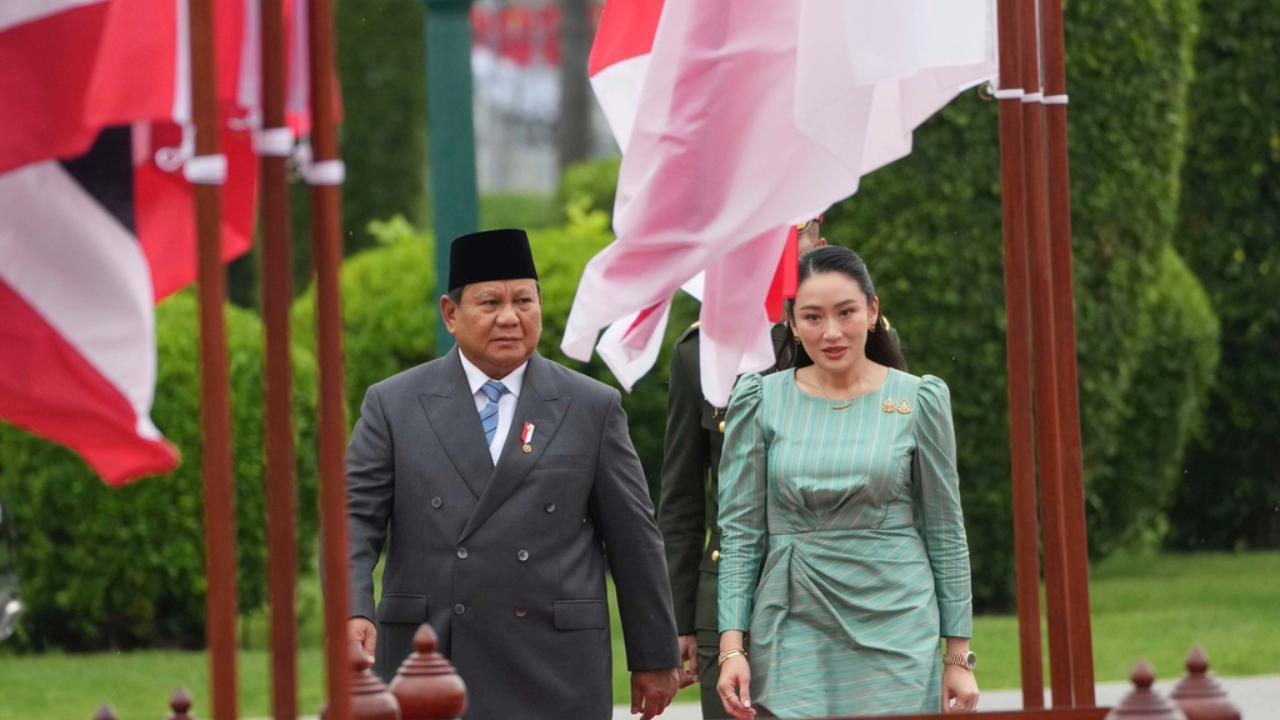You have not yet added any article to your bookmarks!

Join 10k+ people to get notified about new posts, news and tips.
Do not worry we don't spam!

Post by : Anis Farhan
Photo: AP
Indonesia and Thailand, two of Southeast Asia’s largest economies, have signed a pivotal maritime cooperation pact designed to enhance bilateral trade through improved sea connectivity and streamlined logistics. This agreement, signed in late June 2025 during the ASEAN Maritime Forum in Jakarta, is poised to deepen regional integration and unlock new opportunities in shipping, energy, fisheries, and digital trade logistics.
The pact signals a turning point in ASEAN’s push for greater intra-regional trade as global supply chains diversify and countries seek to reduce dependency on extra-regional routes.
The agreement covers five strategic areas:
Port Linkages: Designation of priority shipping lanes between Belawan (North Sumatra) and Laem Chabang (Thailand's largest port), reducing current travel time by nearly 30%.
Digital Documentation: Launch of a blockchain-powered maritime logistics platform to replace paper-based systems for cargo tracking and customs declarations.
Joint Shipping Ventures: Incentives for Thai and Indonesian logistics firms to co-invest in vessel sharing and inter-port warehousing.
Fishery Trade Protocols: Harmonized standards for fishery product exports, enabling smoother certification and tariff processing.
Green Shipping Corridor: Introduction of low-emission shipping lanes with cleaner fuel mandates and carbon-tracking mechanisms.
Currently, bilateral trade between Indonesia and Thailand stands at approximately $22 billion annually. With the new maritime corridor, both governments project a 15–20% increase in trade over the next three years, particularly in automotive components, electronics, processed foods, and crude palm oil.
Indonesia exports raw materials like coal, palm oil, and seafood to Thailand, while importing vehicles, electronics, and chemicals in return. The shorter shipping times and reduced bottlenecks are expected to accelerate delivery cycles and reduce costs—especially crucial for time-sensitive goods.
The timing of this pact is notable. With geopolitical tensions disrupting traditional global supply routes—especially between China and the West—ASEAN countries are urgently developing alternative corridors to secure trade flow. Indonesia and Thailand, as founding ASEAN members with strong manufacturing bases, are positioning themselves as intra-ASEAN trade anchors.
The maritime deal aligns with ASEAN’s Master Plan on ASEAN Connectivity (MPAC) 2025 and complements the ongoing development of the ASEAN Single Shipping Market.
Shipping and logistics companies in both countries have welcomed the agreement. Thai-based regional carrier RCL Logistics plans to expand its container services to new Indonesian ports, while Indonesia’s Samudera Shipping Line is exploring co-loading partnerships. The move is also expected to benefit SMEs by making cross-border logistics more accessible and predictable.
E-commerce giants like Lazada and Tokopedia are also reportedly evaluating how the corridor can reduce last-mile delivery time for cross-border orders.
Despite the optimism, experts warn of operational bottlenecks. Indonesia’s port infrastructure, particularly outside Java, still faces capacity constraints and labor shortages. Efficient execution of the agreement will require significant public-private coordination, port upgrades, and digital infrastructure investments.
There are also concerns over the readiness of smaller port operators to adopt the new digital platforms and meet green shipping standards.
Beyond just Indonesia and Thailand, the agreement is being viewed as a pilot model for other ASEAN member states. Vietnam and Malaysia are already exploring similar maritime partnerships. If successful, the corridor could serve as a foundation for a broader Southeast Asian maritime trade network that rivals some of the world’s most efficient shipping systems.
Both nations have committed to periodic review and scaling up the partnership based on performance metrics and evolving trade patterns.
This article is intended for informational purposes only and should not be construed as legal, investment, or trade policy advice. Readers should consult appropriate authorities or experts for specific guidance related to maritime agreements and trade logistics.










Thai AirAsia Targets Growth Through China & Long-Haul Routes
Thai AirAsia aims 6-9% revenue growth in 2026 expanding domestic flights and new international route

India Ends Silent Observer Role Emerges Key Player in West Asia
From passive energy buyer to strategic partner India’s diplomacy in West Asia now commands trust inf

Indian Students Stuck In Iran Amid US-Iran Tensions And Exam Worries
Rising US-Iran tensions leave Indian students stranded, fearing missed exams could delay graduation

India Says J&K Budget Exceeds Pakistan’s IMF Bailout
India slammed Pakistan at UNHRC, stating J&K’s development budget exceeds Pakistan’s IMF bailout and

UP CM Holds Talks With Ex Japan Economy Minister in Tokyo
Yogi Adityanath met former Japan economy minister Nishimura Yasutoshi in Tokyo to boost UP-Japan coo

Hiroshima Teacher Arrested for Alleged Sexual Assault of Minor
A 37-year-old high school teacher in Hiroshima was arrested on suspicion of sexually assaulting a te